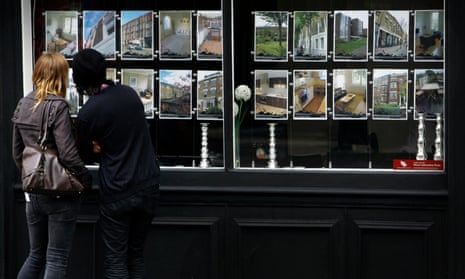When I arrived in London to study at the London School of Economics in the late 1990s, I borrowed £100,000 from my British bank to buy, with zero deposit, a rat hole in King’s Cross. That rat hole is now worth 10 times what I paid for it and is just a stone’s throw away from the Eurostar terminal and a host of new developments.
How I wish this were true. This is what I would have done, had I been born British. But I’m French and I would have never dreamed of borrowing money and spending what I didn’t have. That’s the thing: Britain invented capitalism (and speculation). You are taught to spend and make profits; we learn to save. Two different schools of thought, two different outlooks on property ownership. The British attitude towards property, the desire to make money out of buying and selling it, is viewed as pure speculation on the other side of the Channel.
The old Catholic distrust of money and profits permeates our view. This is probably why generations of French people, my family included, have never fantasised about owning their home. We didn’t have to. It didn’t make any sense and wasn’t an ambition in life.
My parents rented the family home in Paris for 45 years, and although they did buy a seaside flat and a cottage in the country in the 1970s, their value has only kept pace with inflation. They are not dumps: they are modest with, I must concede, some sonorous 1950s plumbing, but they are lovely and we have never thought of renting them out or selling them. If you do buy property in France, it is usually to live in it or enjoy it, rarely to redo and sell on for a quick buck.
In London, I discovered a different mindset and reality. First, you needed to get your foot on the property ladder as early as possible, with the help of family if possible, the complicity of a bank manager and the madness to think that you could live happily with the burden of a 25-year mortgage so big you would need to share your home with a lodger and restrict your evenings out until at least your 30s. If you failed to do so – as I did – you were considered at best eccentric, at worse a failure.
Then, 10 years later, you would reach the second step on the property ladder, this time with a partner and baby in tow. You might have made a good profit on your first home but since you would have to reinvest it all in a larger property and take on another crushing mortgage, you’d still be on the hamster wheel.
However, I soon found out that the alternative – renting – was a depressing affair, so much so that some of my London friends ended up moving to Berlin. There, they could rent a large apartment for the price of my leaky room in Kilburn, north-west London.
In Britain, landlords seem to have only rights, and tenants only duties. I remember rents going up every six months (in France they are controlled), rain pouring through the ceiling over my bed, walls only standing up thanks to the million coats of paint applied by generations of students, and leases so short you needed to move almost every year. The only good thing was flat-sharing with my British friends – a real school of life. And I understood why they longed to own their home, considering the awfulness of renting. A self-fulfilling system, this was.
Economics and culture are of course interconnected. The British economy is built on this home ownership hysteria and if the government bangs on about cutting the public deficit, it is partly to avoid talking about the country’s stratospheric level of private debt – which it encourages.

The British are among the most indebted people in the world. At the end of 2015, they personally owed almost £1.5trn, and the Office for Budgetary Responsibility forecast puts household debt in 2019 at 182% of disposable income – more than twice as much as in France. This is mostly driven by mortgage debt, but also by the heavy use of consumer credit.
I recall how as a student I was deluged with offers of credit cards. I couldn’t understand it: why did these professionals, who were supposedly sound of mind, want me to go into debt? I wouldn’t be able to repay it! My British friends thought differently, and one tried to teach me the game: “Get a credit card and buy yourself nice things, then ask another bank for another one and use it to reimburse the debt on the first one at the end of the month, and so on.” That friend had five credit cards and a mortgage, and loved clothes a little too much. This après moi, le déluge mentality was both frightening and admirable. But it seemed to work for most people. This friend now has three properties and runs a cafe.
Britain has a risk-taking culture. In France, we are risk-adverse and debt is considered a social disease. Even if you want to borrow yourself to death, as in Britain, you can’t – the law doesn’t allow it. Monthly repayments, to pay off a mortgage for instance, cannot exceed 30% of your income. In other words, in France the legislators make sure you have enough left every month to buy your daily dose of reblochon and go to the movies.
So while the French are left to enjoy life’s many modest pleasures, courtesy of legislators who look after them like mother hens, the British live more dangerously, and by doing so sustain the country’s infrastructure. In other words, while we save, you spend; while we rent, you buy, sell and buy again. And make the British economy roar. As they say, no pain, no gain.

